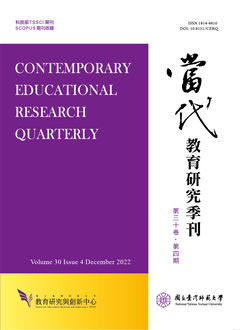

學校心理學基於實證本位,其發展歷史可追溯至1896年的美國,至今發展為支持孩童身心健康及幸福感並促進孩童的學習與發展為目標。國內於 2014 年通過學生輔導法,此法的通過對心理學在學校的實踐樹立了重要的里程碑,也對學校心理服務有了更明確的規範。然而,現階段學校心理服務在目前學校實施上已出現瓶頸。
本文旨在回顧美國、香港及澳洲學校心理學在服務模式和培訓的發展趨勢,回顧這些國家的學校心理學的發展和應用,發現每個國家在學校心理服務之共同性,都強調實證本位的重要性,以及在服務模式上,已從以個案焦點的直接性服務逐漸走向強調第一線預防的全校性系統之改變,前述的學校心理學在學校的功能之改變也反應在學校心理師的專業培訓。透過比較對照我國學校心理服務之現況,尚未看到類似的趨勢。本文藉由國際趨勢和國內的學校心理服務之瓶頸,試圖從學校心理學的思維提出改進國內學校心理服務,以及發展我國學校心理學專業之建議,從學校、學區及政府層級提出同時包含由上而下及由下而上的革新策略。期待透過國際比較,重新思考提升我國現行學校心理服務的效能。
The history of school psychology can be traced back to 1896 in the United States, primarily focusing on using evidence-based practices to support children̓s mental health and well-being, thereby facilitating learning and development. The passing of the Student Guidance and Counseling Act in 2014 set an important milestone for the practice of school psychology in Taiwan. However, the implementation of school psychology services in schools continues to face challenges.
This article reviews the developmental trend of school psychology services and its profession in three societies: the United States, Hong Kong, and Australia. The evolution of its service model and training is central in this discussion. A retrospective view of school psychology̓s developmental trends in these societies underscores a strong emphasis on evidence-based practices. Likewise, school psychology services are transitioning from client-centred direct services to indirect services such as system change and school-wide preventive practices. The function of school psychology is reflected in the training of school psychologists. However, an analysis of Taiwan̓s current school psychology service does not reveal a similar trend.
Based on these international trends and the bottlenecks of domestic school psychology services in Taiwan, this paper attempt to put forward suggestions to enhance the effectiveness of psychological services in schools and to promote the development of school psychology in Taiwan; we advocate for a transformative change, a fusion of both top-down and bottom-up approaches, incorporating changes within individual schools, school districts, and governmental levels. Hopefully, through this international comparison, we can reduce disputes in our current system; rethink and enhance the efficacy of the current school psychology services in Taiwan.

本著作係採用創用 CC 姓名標示-非商業性 3.0 台灣 授權條款授權.
本刊國立台灣師範大學教育研究與創新中心
106台北市和平東路一段162號 | 電話: 02-7749-3670 | E-mail: cerecerq@gmail.com
教創中心 | 師大 | 電子報 | 線上投審系統
本刊由國家科學及技術委員會人文社會科學研究中心補助經費
© 2014 CERI-NTNU
